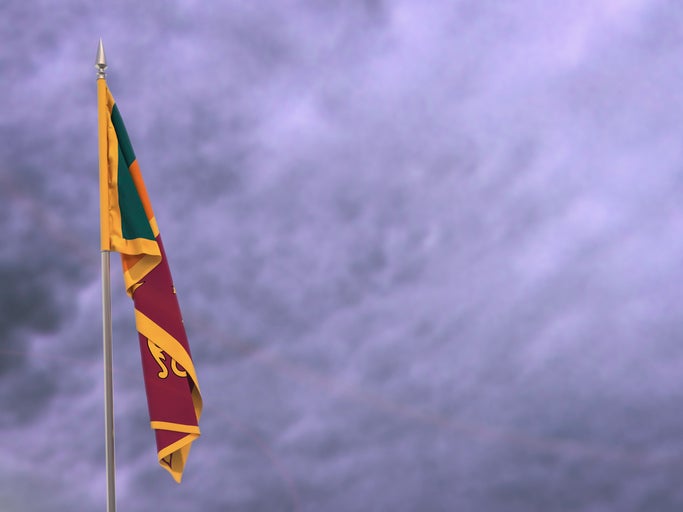
A research brief by the Clean Clothes Campaign (CCC) calls on major brands sourcing from Sri Lanka to take responsibility for their workers’ survival in the wake of severe economic crisis in the country.
The brief reveals that Sri Lankan garment workers have not been receiving the full Emergency Relief Allowances (ERA) of 10,000 LKR (US$27) on top of their monthly wages. The ERA was instituted in response to requests from the unions to counter the effects of currency devaluation and rampant inflation on workers’ livelihoods.
Instead, workers have received far less than the ERA, or nothing. Bonuses have only been paid out under certain conditions, such as perfect attendance.
The financial and political crisis that started in 2019 in Sri Lanka has burdened approximately 350,000 garment workers in the country who were already living on subsistence incomes, CCC says.
According to the CCC, several attempts by organisations in the CCC network to engage with the main garment brands sourcing from Sri Lanka urging them to take action to safeguard the livelihoods of their workers have had little effect thus far.
Patagonia, a brand which produces in Sri Lanka, exclusively commented to Just Style that “Patagonia has been in contact with our partners there, and we are committed to maintaining those relationships and working to ensure business continuity. Currently, our sewing factory partners in Sri Lanka are Fair Trade-certified, which in addition to being regularly monitored, means we pay a premium for every unit produced at these factories and those premiums go to a workers fund controlled by workers. Fair Trade USA has procedures in place to enable workers to activate those funds for emergency support if they so choose.”
Victoria’s Secret, another company producing in Sri Lanka, told Just Style that “No matter the circumstances, we hold our suppliers to the standards set forth in our supplier code of conduct and supplier guidebook, which include the demands outlined in this brief. We are working closely with our partners in Sri Lanka to ensure stability, and we have not altered our sourcing strategy in country. We remain committed to our suppliers and their associates in Sri Lanka.”
Just Style understands that Asos have written payment of an ERA into the company’s non-negotiable minimum requirements for all new factories proposed for onboarding, and that Asos’s ethical trade team will be visiting several factories in Sri Lanka this month to discuss the issue.
Other garment brands which produce in Sri Lanka include PVH (Calvin Klein, Tommy Hilfiger), Gap, Nike, Amazon, Next, Marks & Spencer, Columbia Sportswear, Ralph Lauren and others. None of these companies responded to Just Style’s request for a comment on the CCC’s research when approached.
The CCC brief calls upon these brands to ensure that the workers in their Sri Lankan supply chains are paid the ERA unconditionally and that their right to organise and to have decent working conditions in line with the Conventions of the International Labour Organisation are safeguarded.
Anton Marcus, joint secretary of the Free Trade Zones & General Services Employees’ Union, the largest union representing garment workers in the country, said: “Brands have a responsibility to the workers that enable their profits. They must ensure that the factories they source from pay their workers the 10,000 LKR (US$27) Emergency Relief Allowance.
“If factories are not able to do so, then brands should step in and contribute financially to make it possible. Sri Lankan garment workers have contributed to making these brands rich. Therefore, the least these brands can do is to ensure their workers get through this crisis.”
Recently, the Sri Lankan Joint Apparel Association Forum (JAAF) announced support for the International Labour Organisation’s Better Work initiative which supports garment workers in the country.
Of the CCC’s brief, JAAF refuted the “serious allegations against Sri Lankan apparel manufacturers who are partnered with the brands.” JAAF denies the CCC’s statements of wage theft, subsistence wages, and the brief’s implication of the legal institution of the ERA.



